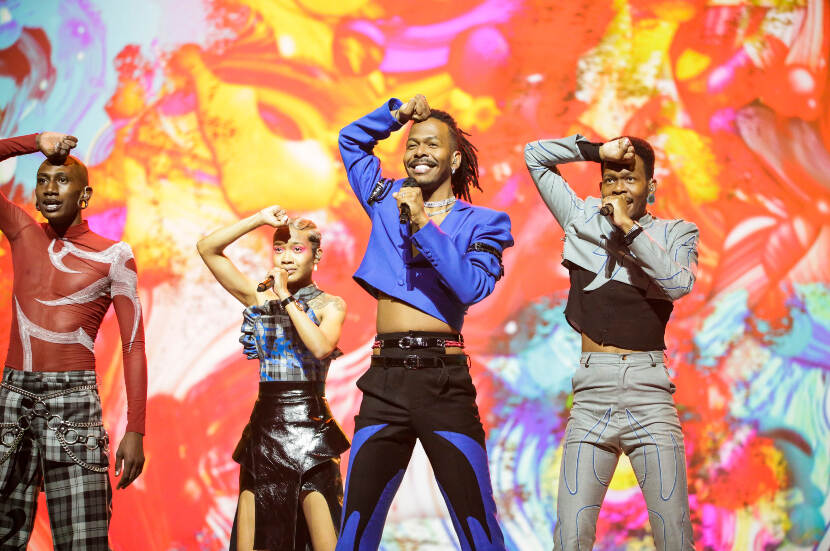The 68th Eurovision Song Contest, held in Malmö, Sweden, concluded with a surprising victory for Switzerland’s non-binary artist Nemo. However, the road to the grand final was paved with controversy, making this edition one of the most divisive in Eurovision’s history.

A Night of Spectacle and Controversy Collide
Eurovision, renowned for its eccentric performances and passionate fan base, delivered the usual spectacle. From Spanish “Kylie Minogue” dancers to a Finnish entrant sporting denim shorts delivered onstage by rope, the competition offered its signature blend of the flamboyant and unexpected. However, this year’s event was overshadowed by pre-contest turmoil.
Turmoil Backstage: Reports of unrest among contestants and delegations dominated social media. Rumors of missed rehearsals, flag-pulling incidents, and alleged backstage misconduct disrupted the usual joyous build-up. The disqualification of Dutch participant Joost Klein on accusations of intimidation further fueled the negativity.
Geopolitics on the Eurovision Stage: Long considered a non-political event, Eurovision has become a platform reflecting geopolitical realities. Russia’s 2022 disqualification following its invasion of Ukraine is a prime example. In a show of solidarity, Ukraine’s Kalush Orchestra triumphed that year, though some critics questioned the performance’s strength.
A Divisive Spotlight on Israel’s Participation
Israel’s Eden Golan became a focal point for controversy. Her participation was met with widespread criticism, including boos during rehearsals. While Golan ultimately received a respectable fifth-place finish through public voting, the pre-contest atmosphere remained tense.
Sparking Outrage: Golan’s initial song, “October Rain,” allegedly referenced the Hamas attack on Israel in October 2021. This triggered condemnation due to the devastating human cost of the Israeli-Palestinian conflict, particularly in Gaza. Golan ultimately performed a different song, “Hurricane,” yet some fans vowed to boycott the event due to the ongoing conflict.
A Mixed Reception: Despite the controversy, Golan received some public backing. Her fifth-place finish indicates that viewers may have formed a more positive impression than initial criticism suggested. However, a noticeably less enthusiastic response from the Malmö Arena audience towards Golan and the Israeli spokesperson suggests some lingering tension.
A Celebration of Music with a Message
Despite the controversy, the Eurovision Song Contest ultimately served its purpose – celebrating music on a grand international stage. Switzerland’s Nemo emerged victorious with their song “The Code,” while viewers were treated to a diverse range of performances.
However, the pre-contest turmoil underscores the event’s growing role as a platform for geopolitical commentary. As the world grapples with complex realities, Eurovision will likely continue to be a stage for discussions and debates extending beyond the realm of music.
Looking Ahead: Eurovision in a Changing World
The 68th Eurovision Song Contest offered a glimpse into the future of the event. As the competition becomes more globalized and reflects contemporary issues, we can expect further instances of controversy intermingling with musical celebration.
Whether Eurovision can maintain its balance between entertainment and social commentary remains to be seen. However, one thing is certain: the contest’s unique blend of music, spectacle, and cultural exchange will likely continue to captivate audiences worldwide.




